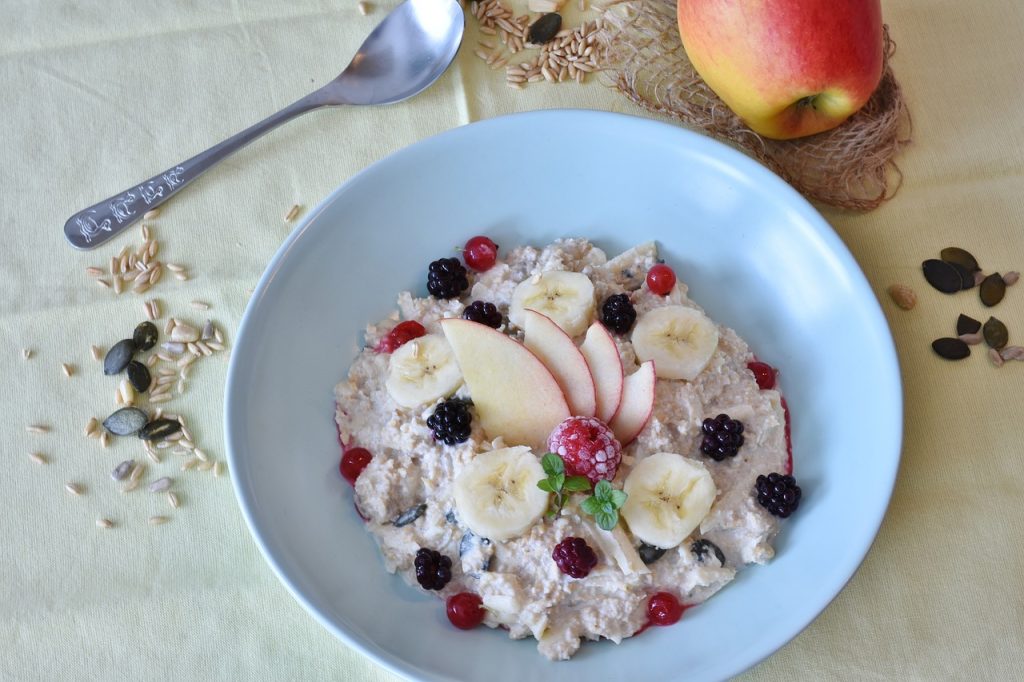Each age group and gender need different amount of calories, depending on the amount of activity they partake in each day. There is also a recommended intake for carbohydrates, protein and fats.
The following tables and calculations give a general guideline for reasonably active individuals – less or more active individuals will require less or more of the nutrients. Consult your dietitian for a tailored calorie plan.
Calorie intake
This table gives a general guide on the calorie intakes recommended for all age groups – people who are more active may need more calories, while those that are less active may need less calories. Apart from the general recommended calorie intake information below, we also have a recommended calorie intake calculator which produces your specific calorie requirements (based on your individual information).
| lifestage | GENDER / age | CALORIES |
|---|---|---|
| INFANTS | Boys: 0-1yrs Girls: 0-1yrs |
n/a |
| TODDLERS | Boys: 1-3yrs Girls: 1-3yrs |
1,230 1,165 |
| CHILDREN | Boys: 4-6yrs Girls: 4-6yrs |
1,715 1,545 |
| CHILDREN | Boys: 7-10yrs Girls: 7-10yrs |
1,970 1,740 |
| TEENAGERS | Boys: 11-14yrs Girls: 11-14yrs |
2,220 1,845 |
| TEENAGERS | Boys: 15-18yrs Girls: 15-18yrs |
2,755 2,110 |
| ADULTS | Men: 19-50yrs Women: 19-50yrs |
2,550 1,940 |
| SENIORS | Men: 19-50yrs Women: 19-50yrs |
2,550 1,940 |
| PREGNANT WOMEN | Women: <18yrs Women: 19-50yrs |
n/a |
| LACTATING WOMEN | Women: <18yrs Women: 19-50yrs |
n/a |
To calculate the general recommended calories for your individual circumstances (male/female, age/weight/height and activity level), we have added a recommended calorie intake calculator.
Calculating calories
The usual form of denoting energy intake is either calories (which is really a kilocalorie, but shortened to calorie) or kilojoules. The “calorie” content shown on food packaging, is usually the shortened form of the proper term, which is “kilocalorie”. Kilojoule is the newer way to denote energy intake and is a decimal term.
- 1000 calories = 1 kilocalorie
- 1 kilocalorie = 4.2 kilojoules
Carbohydrate intake
Latest recommendations for carbohydrates, are that they should consist of about half of the daily calorie intake – which is approximately 45%-65% of the total daily calorie intake.
Carbohydrates provide the following amount of energy:
4 kcal / g
An adult on a 2000 calories a day diet needs:
For 45% of the calorie intake:
- 900 calories should be carbohydrate foods
(2000 x 0.45 = 900) or - 225g of worth of carbohydrate foods
(900 calories / 4 calories/g = 225g)
For 65% of the calorie intake:
- 1,300 calories should be carbohydrate foods
(2000 x 0.65 = 1300) or - 325g of worth of carbohydrate foods
(1300 calories / 4 calories/g = 325g)
Fat intake
Fats (or lipids, which is the nutritional / scientific term) come in all types, but the ones that are recommended to be eaten on a regular basis are the unsaturated ones (polyunsaturated and monounsaturated fats).
Latest recommendations for fats, are that they should consist of about 25%-35% of the total daily calorie intake.
An adult on a 2000 calories a day diet needs:
- 60g unsaturate fat (if 25% of calorie intake)
- 90g unsaturate fat (if 35% of calorie intake)
Protein intake
Latest recommendations for proteins, are that they should consist of about 15%-35% of the total daily calorie intake, or 0.8g per kg of body weight per day (infants and children – the recommended intake is slightly higher because they require a lot more protein due to the fact they are growing and require it to build more muscle tissue).
A 60g adult on a 2000 calories a day diet needs:
- 48g protein (60kg x 0.8g/kg)
An 80g adult on a 2000 calories a day diet needs:
- 64g protein (80kg x 0.8g/kg)

